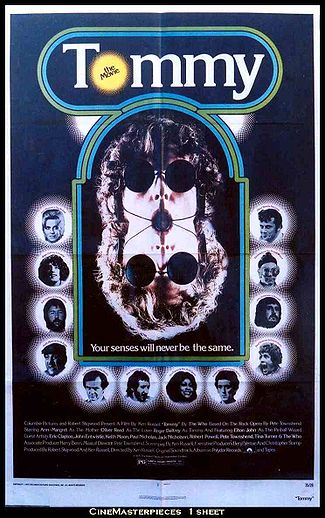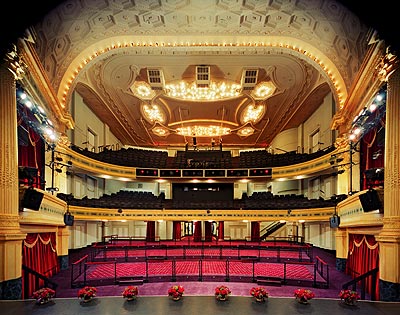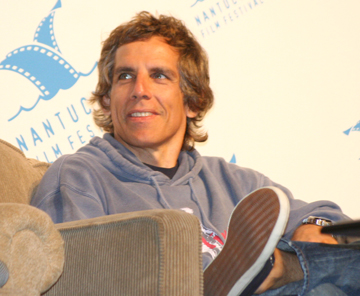|
|
||
|
Pro Tools
FILMFESTIVALS | 24/7 world wide coverageWelcome ! Enjoy the best of both worlds: Film & Festival News, exploring the best of the film festivals community. Launched in 1995, relentlessly connecting films to festivals, documenting and promoting festivals worldwide. Working on an upgrade soon. For collaboration, editorial contributions, or publicity, please send us an email here. User login |
Tribeca Film Festival: Johanna Hamilton Talks Political Thriller/Heist "1971"
Nineteen-seventy-one was the year the American press lost its virginity. That June, Daniel Ellsberg leaked the Pentagon Papers. But a lesser-known WikiLeaks antecedent took place three months prior, as captured in Johanna Hamilton's riveting documentary 1971. On the evening of March 8, eight anti-war protesters broke into an FBI office in Media, Pennsylvania, and made off with every document they could lay their hands on. The heist went down on the evening of the sensational Muhammad Ali-Joe Frazier boxing match, when FBI security, like millions of Americans, were glued to their TV sets. Soon after, the group began releasing their damning booty to media organizations so that Americans would be clued in to the Bureau's formidable civilian surveillance and intimidation activities such as COINTELPRO. Hamilton's taut exposé unveils the protesters' identities. Spearheading the group, which dubbed itself the Citizens' Commission to Investigate the FBI, was the intrepid Haverford College physics professor William C. Davidon. Some four decades later, we now meet him on camera alongside other former members including Philadelphia couple John and Bonnie Raines and self-taught locksmith Keith Forsyth. Among the biggest challenges Hamilton faced in recreating their story was precisely what had allowed them to fly under the radar for all these years: they took scrupulous care not to leave a shred of evidence linking them to the burglery. "There was nothing that existed from the break-in," said Hamilton just prior to the film's world premiere at the Tribeca Film Festival. "So we dramatized that, working with a wonderful recreations producer from Man On Wire and Project Nim, Maureen Ryan, whose work I had long admired." Aware of the potential cheesiness associated with dramatic recreations, Hamilton granted, "It was obviously a risky thing to do, but hopefully it makes the film more cinematic and brings it alive." Amid the flashing lights of the TFF red carpet, Hamilton spoke with with me in lilting British English about the making -- and relevance -- of 1971. Q: What prompted you to open with a sequence of Keith Forsyth picking a lock? JH: That interview was a tiny bit of an afterthought. I wanted to show what it was that Keith had practiced on 40 years ago, as a prop. It was the beginning of our recreations, and it was a very small shoot, but it morphed into -- as these things do in the documentary world -- a completely different moment. I took out this lock pick and he started to fiddle with it and all these memories came flooding back to him. He got very emotional in unexpected ways. There was no way we couldn't use that interview, which became very touching, very moving. Q: How does lock-picking comment on your topic? JH: It does feel like the metaphor for the film: lock, privacy, transparancy, accountability -- all of the issues that we deal with. Them literally having to break in, break down the door, because they knew there was no way the FBI would otherwise be held accountable. Today's world is digital and they don't have to literally break in, but the metaphor still resonates. Q: Keith's discovery that the FBI door now has a cylinder lock indicates that there may have been a leak surrounding the Citizens' Commission, and introduces more of a suspense element. What subgenres were you incorporating in the documentary? JH: Dealing with that tension was always part of the story -- the fact that on the night of the burglery Keith had to deal with all of these unknowns. It's a heist movie at the heart of it but it's also a journalism/politics thriller. You have all these ordinary people who put everything on the line on a hunch. They didn't know what they were going to find when they broke in. They suspected strongly, but they risked everything for perhaps nothing. And then you have this great moment with the Fourth Estate. The Washington Post decides to publish. It was the first time that a newspaper had to deal with the issue of: what do you do when you receive stolen documents from someone outside the government? And then you have the larger political story finishing with the Church Committee, which is what people are starting to talk about today: what happened? It was the first investigation into US intelligence agencies and the putting into place of the safeguards that we've seen over the past 10 years. Q: Was the March 1971 leak a watershed in the US media's loss of innocence? JH: Yeah, it's possible. (The Washington Post publisher) Katherine Graham had to make some really tough decisions. And it happened in a flash. She made a very courageous decision within a period of 12 hours. Q: How do the abuses of J. Edger Hoover's FBI connect with recent state spying leaked by former National Security Agency contractor Edward Snowdon and others? JH: This is the analog prequel to the NSA spying that we're seeing today. Today it can be much more expansive. Back in the day we didn't have the capabilites that we have today. So I have no doubt that it's more extensive than it ever was. Q: How did these unfolding news stories affect your thinking about your historical film? JH: (The issues are) present and current and relevant in ways I could never have imagined four years ago. As we were finishing editing the film, the Snowden story was breaking, which was simultaneously terrifying (and thrilling). We thought: should we carry on? Do we continue editing? Q: 1971 was co-produced by Laura Poitras, who's making a film about the NSA's surveillance. Did you consider covering current developments in your film? JH: One of the first people I turned to for advice on this film was my colleague Laura Poitras. She joined very early on as an adviser. I had no idea -- nor did she -- at that point. It does really feel like we bring the story full circle. In the end we decided to stick closely with the story we had and rather have the current discussion run as an undercurrent to our film, because I knew all along that Laura's film would be dealing with the current issues, and it's due out within the year. 26.04.2014 | Laura Blum's blog Cat. : 1971 Cizizen'z Commission to Investigate the FBI heist Johanna Hamilton Keith Forsyth Laura Poitras Maureen Ryan political thriller Tribeca Film Festival Wikileaks William C. Davidon Independent
|
LinksThe Bulletin Board > The Bulletin Board Blog Following News Interview with EFM (Berlin) Director
Interview with IFTA Chairman (AFM)
Interview with Cannes Marche du Film Director
Filmfestivals.com dailies live coverage from > Live from India
Useful links for the indies: > Big files transfer
+ SUBSCRIBE to the weekly Newsletter Deals+ Special offers and discounts from filmfestivals.com Selected fun offers
> Bonus Casino
User imagesAbout Laura BlumThe EditorUser contributions |






























